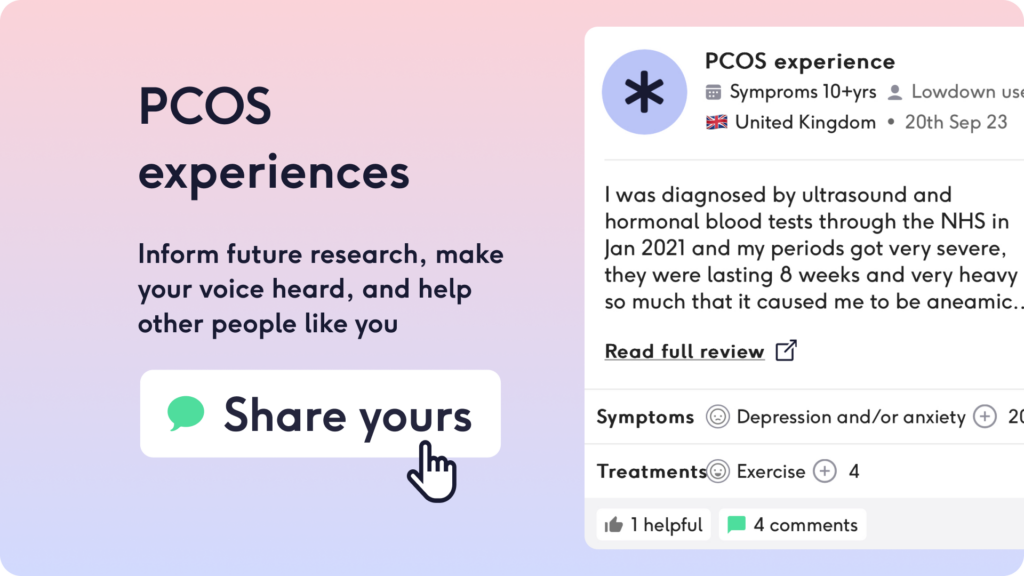
Metformin for PCOS
Key things to know:
- PCOS is strongly associated with insulin resistance
- Metformin may be a suitable medication in some people with PCOS
- It is generally prescribed by a specialist (gynaecologist or endocrinologist), or by a GP following advice from a specialist
- It’s important to make an informed decision about whether metformin is right for you
What is metformin?
Metformin (or metformin hydrochloride) is a drug that for many years has been used as a treatment for diabetes. It acts to reduce blood sugar levels in two ways¹:
- by reducing the amount of sugar released by the liver
- by increasing our bodies ability to absorb sugar from the bloodstream into cells (through better sensitivity to insulin)
What is “insulin resistance” in PCOS?
Most people with PCOS also have insulin resistance. The information on social media surrounding insulin resistance and PCOS can be quite overwhelming at times!
So to clear things up, insulin resistance can be explained by the following²:
- When we eat foods such as carbohydrates, they are converted into sugar which goes into the bloodstream
- Insulin acts like a key, to open cell doors to this sugar and allow our body to process it. When someone has insulin resistance, the body’s cells don’t respond as they should to this insulin. Therefore, the body can’t process the sugar and blood sugar levels remain high.
- The body will generally produce higher levels of insulin to try and overcome this.
- This may keep blood sugars normal for a while, but most people with insulin resistance can eventually go on to develop hyperglycaemia (higher than normal blood sugar levels). This is sometimes referred to as impaired glucose tolerance.
Insulin resistance is traditionally associated with diabetes, but it also plays a very important role in the development of PCOS and its symptoms³. The resulting high levels of insulin in the blood causes the body to produce more hormones like testosterone, leading to some of the symptoms of PCOS eg excessive hair growth and acne. Insulin resistance is also closely linked with some of the long term health consequences of PCOS such as type 2 diabetes and diabetes in pregnancy⁴.
Metformin and PCOS
Metformin can be used in the treatment of PCOS, particularly when symptoms are thought to be closely linked with insulin resistance and impaired glucose tolerance⁵. This is because in theory, by treating the insulin resistance, this will prevent the resulting hormone changes that cause the symptoms of PCOS. It can also be considered as a treatment option in women with PCOS who are trying to get pregnant as it can improve ovulation (release of an egg), but this is usually as an additional treatment as other medications (clomifene and letrozole) are known to be better.
Metformin can be used on its own or in combination with other PCOS treatments. It should always be used alongside the recommended lifestyle changes for PCOS4.
It’s use in PCOS is termed as ‘off-label’, because it has only been officially licensed by drug regulators for the treatment of diabetes and not PCOS.
Use of metformin appears safe long-term, based on the evidence we have from other conditions such as diabetes, however it is thought that the long term benefits in PCOS haven’t been properly studied5.
It comes in tablet form, and most people will end up taking one tablet between two to three times a day¹.
It’s generally prescribed by a specialist (gynaecologist or endocrinologist), or by a GP following advice from a specialist.
Who can benefit from metformin?
The National Institute for Health and Care Excellence (NICE) is an organisation that makes recommendations for managing medical conditions in the UK.
In their recommendations for PCOS7 they refer to a guideline by the International PCOS Network from 20238 which recommends metformin should be considered in people with a higher metabolic risk. Some examples include; people with a BMI over 25; people with diabetes risk factors; or people with evidence of impaired glucose tolerance. They also recommend it can be used in the management of weight and metabolic outcomes, especially when lifestyle measures alone haven’t done the trick.
However it’s important to do extensive research (like reading this blog!) and to speak to your doctor about whether metformin is right for you.
What are the side effects of metformin?
Like with any medication, metformin can come with some side effects7. These are mostly relating to stomach upset such as stomach pain, diarrhoea, alongside feeling nauseous or vomiting. These are relatively common symptoms (more than 1 in 10 people) but they mostly happen at the start of treatment. Some doctors recommend therefore spreading your dose throughout the day or taking them with food. Modified release metformin tablets may reduce these side effects.
How well does metformin work for PCOS?
This is a difficult question to answer, because simple put, there just aren’t that many high quality scientific studies that look at how well metformin works for PCOS.
Most studies that exist compared it to co-cyprindiol (a type of contraception aka Dianette). A summary of these studies9 has come to the conclusion that there was no major difference between the two in terms of their effect on excessive hair growth and acne (but that is not to say that neither of them work). The contraception was thought to be better at regulating periods.
We still don’t have any studies on the effect of metformin on the long term outcomes of PCOS that were mentioned earlier such as type 2 diabetes.
In order to choose whether metformin is the right drug for you it’s important to do your own research, discuss with your doctor, and remember that everyone’s approach to their PCOS will be different. If you are looking for specialist support, especially if you’re trying to lose weight or get pregnant using metformin, think about booking in with our specialist partners at Luna Clinic.

Our medical review process
This article has been medically reviewed for factual and up to date information by a Lowdown doctor.

